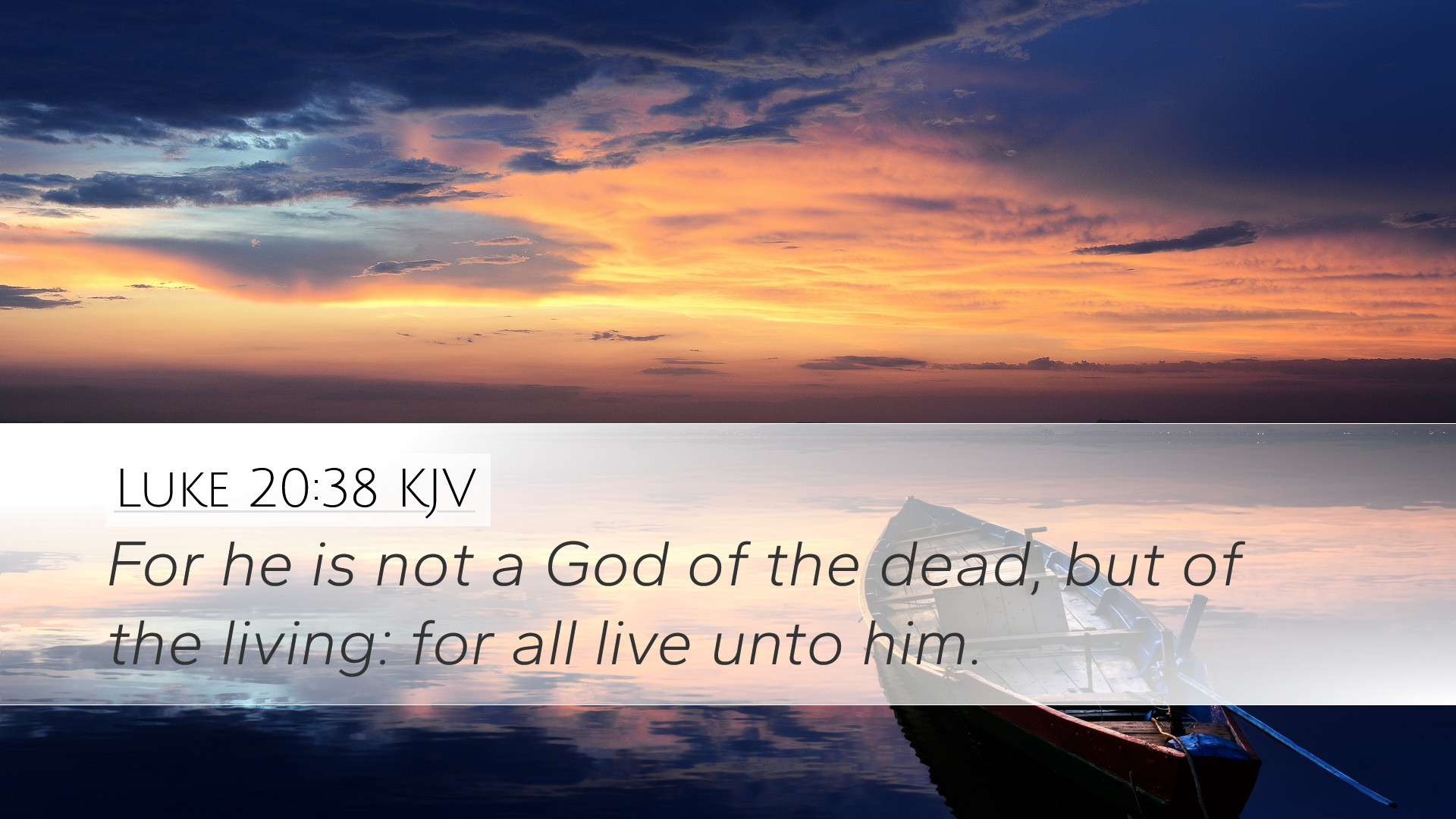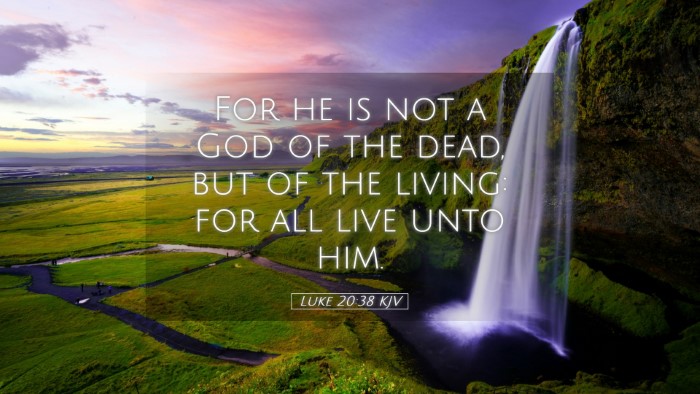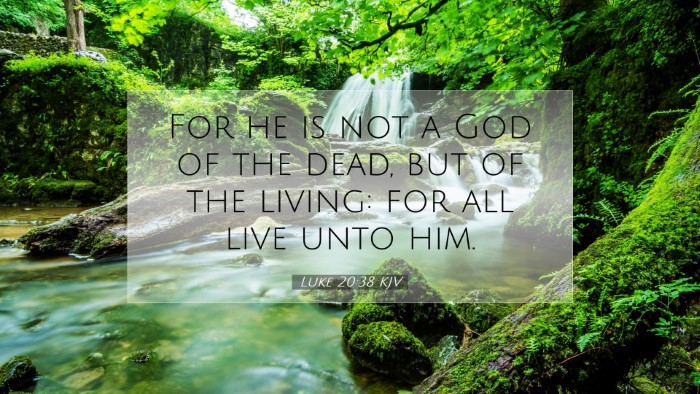Old Testament
Genesis Exodus Leviticus Numbers Deuteronomy Joshua Judges Ruth 1 Samuel 2 Samuel 1 Kings 2 Kings 1 Chronicles 2 Chronicles Ezra Nehemiah Esther Job Psalms Proverbs Ecclesiastes Song of Solomon Isaiah Jeremiah Lamentations Ezekiel Daniel Hosea Joel Amos Obadiah Jonah Micah Nahum Habakkuk Zephaniah Haggai Zechariah MalachiVerse
Luke 20:1 Luke 20:2 Luke 20:3 Luke 20:4 Luke 20:5 Luke 20:6 Luke 20:7 Luke 20:8 Luke 20:9 Luke 20:10 Luke 20:11 Luke 20:12 Luke 20:13 Luke 20:14 Luke 20:15 Luke 20:16 Luke 20:17 Luke 20:18 Luke 20:19 Luke 20:20 Luke 20:21 Luke 20:22 Luke 20:23 Luke 20:24 Luke 20:25 Luke 20:26 Luke 20:27 Luke 20:28 Luke 20:29 Luke 20:30 Luke 20:31 Luke 20:32 Luke 20:33 Luke 20:34 Luke 20:35 Luke 20:36 Luke 20:37 Luke 20:38 Luke 20:39 Luke 20:40 Luke 20:41 Luke 20:42 Luke 20:43 Luke 20:44 Luke 20:45 Luke 20:46 Luke 20:47

